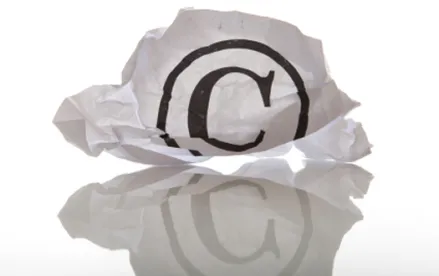In the latest appeal of a copyright infringement dispute, the US Court of Appeals for the Ninth Circuit upheld the lower court’s finding that the copyright owner’s photographs were not part of a single compilation for purposes of awarding statutory damages. VHT, Inc. v. Zillow Grp., Inc., Case Nos. 22-35147; -35200 (9th Cir. June 7, 2023) (McKeown, Fletcher, Gould, JJ.)
VHT is a professional real estate photography studio that real estate brokerages and listing services hire to photograph properties. VHT retouches the photographs, saves them in its photo database and licenses them to its clients for marketing purposes. In 2015, VHT sued Zillow for copyright infringement based on Zillow’s display of VHT photographs on its real estate listing website and on its Digs home design website. The district court found that Zillow was not liable for displaying VHT photographs on its real estate listing website or for displaying untagged, unsearchable VHT photographs on its Digs home design website. However, the district court found that Zillow’s display of tagged, searchable VHT photographs on Digs constituted infringement and that the searchability functionality was not fair use.
The parties cross-appealed, and the Ninth Circuit considered the issue of infringement in a 2019 decision (Zillow I). In this prior appeal, the Ninth Circuit agreed that Zillow’s display of VHT photographs on its real estate listing website was not copyright infringement, while Zillow’s display of searchable VHT photographs on its Digs home design website constituted infringement and was not fair use. The Ninth Circuit also reversed the jury’s finding that Zillow had willfully infringed 2,700 searchable VHT photographs displayed on Digs and remanded for consideration of whether the searchable photographs were a compilation for purposes of awarding statutory damages. On remand, the district court found that the photographs were not a compilation and awarded statutory damages of $200 for each innocently infringed photograph and $800 for each remaining photograph.
The district court also considered the impact of the Copyright Act’s preregistration requirement and Fourth Estate v. Wall-Street (Supreme Court, 2019) on VHT’s ability to sue. In accordance with Ninth Circuit precedent holding that registration is made when the Copyright Office receives a completed registration application, VHT had sued Zillow for copyright infringement after applying for copyright registration. However, the works were not registered until after the suit was filed. Just 11 days before Zillow I was decided, in Fourth Estate, the Supreme Court held that registration is made when the Copyright Office has registered a copyright after examination—not when the application is filed. Zillow argued that VHT’s claims should be dismissed because VHT did not satisfy the preregistration requirement. The district court excused the exhaustion requirement because dismissal would result in a massive waste of resources. The parties again cross-appealed.
Preregistration and Fourth Estate
Addressing the preregistration issue, the Ninth Circuit agreed that dismissal was not required. The decision to excuse compliance with a non-jurisdictional exhaustion requirement is based on whether the claim is wholly collateral to the substantive claim, whether there is a colorable showing of irreparable harm and whether exhaustion would be futile. The Court reasoned that copyright registration was wholly collateral to the merits of VHT’s infringement claim because copyright protection runs from the work’s creation, not its registration. Moreover, dismissing VHT’s claim after the statute of limitations had expired would cause irreparable harm unique to this case as VHT had complied with then-existing Ninth Circuit precedent. Finally, the Court concluded that excusal would not undermine the purpose of administrative exhaustion (to prevent premature interference with agency processes, allow agencies to correct their own errors, and provide courts with the benefit of agency expertise) because the Copyright Office had issued registrations before the third amended complaint was filed.
Compilation
Turning to the compilation issue, the Ninth Circuit agreed with the district court that the searchable VHT images were not part of a single compilation and that each image was entitled to a separate statutory damages award. On remand, Zillow argued that the images were a single compilation because they were part of a single photo database registered by VHT. VHT countered that it also registered the underlying images and licensed the images on a per-image basis. The Court acknowledged that both the independent economic value of the photos and the form of registration were relevant to determining whether the photographs qualified as “one work,” but neither factor was dispositive.
The Ninth Circuit reasoned that Zillow’s view improperly elevated the form of registration above all else and ignored the fact that VHT did not claim infringement based on the selection, coordination and arrangement of works in its database. VHT licensed individual photos in the database—not the database itself—and Zillow used each photo independently. Thus, the value came from each photo’s content, rather than their assembly within the database. The Court also recognized that, at the time of infringement, database registration was the only viable course for stock agencies to register thousands of photos. To hold that registration of a photo database would limit statutory damages to a single award would be contrary to policy and would lead to an influx of applications at the Copyright Office. Thus, the Court concluded that VHT was entitled to an award for each individual photograph.
Statutory Damages
VHT also argued that the district court should not have conducted a new trial to decide statutory damages. However, because the Ninth Circuit had vacated the jury’s finding on willfulness in Zillow I, it was necessary for the district court to conduct a new trial to determine whether any of the infringements were innocent and the appropriate statutory award. The Court reasoned that it would have been inappropriate to use the original statutory damages award without reconsideration because it was unclear whether the jury would have reached the same award absent a finding of willfulness. The Court thus affirmed the district court’s award of statutory damages.



 />i
/>i

